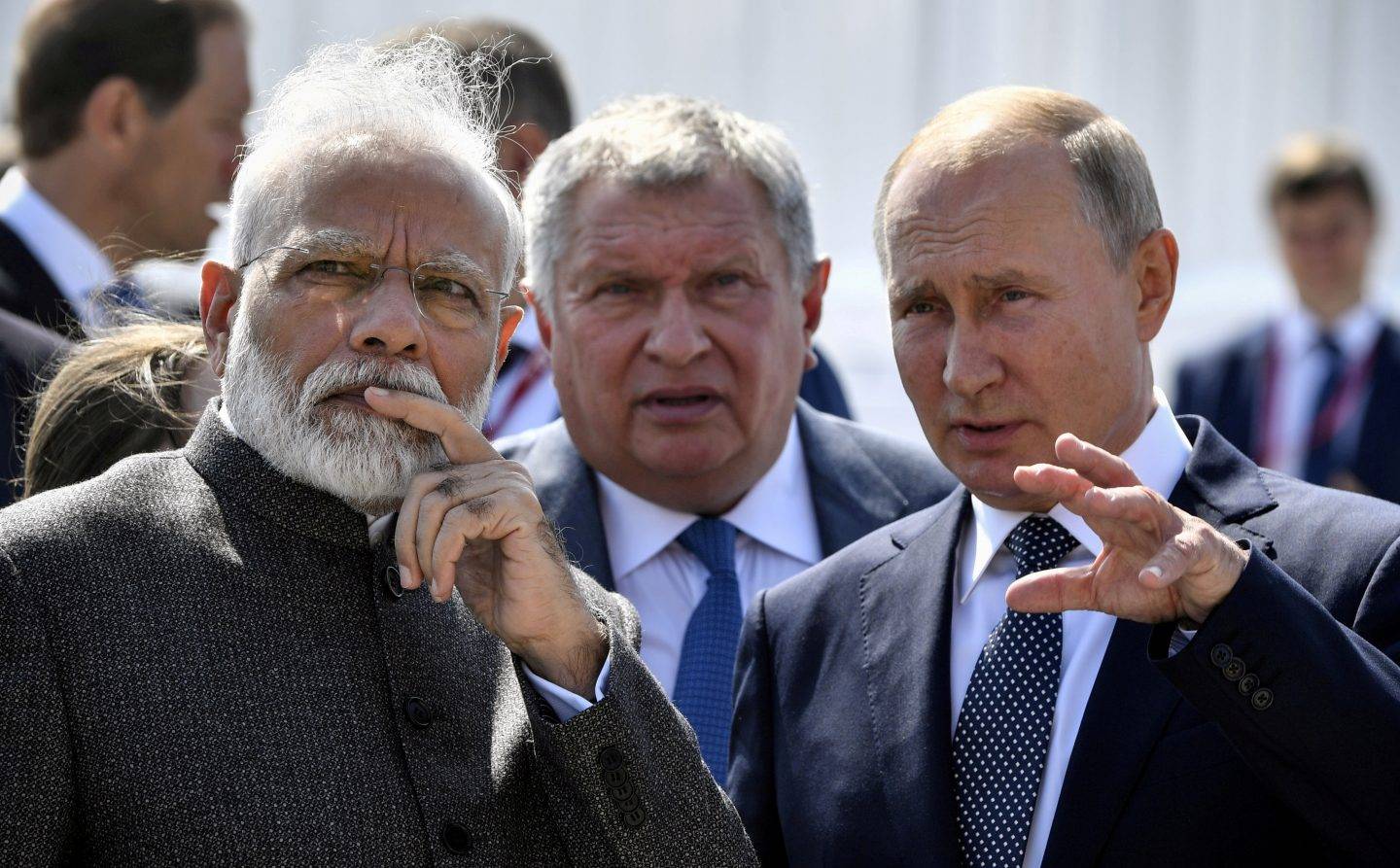In attending the Eastern Economic Forum, Narendra Modi will become the first Indian prime minister to visit Vladivostok, capital of Russia’s Far East. More importantly this visit to the Pacific coast will signal a reset of India’s relationship with Russia. Despite continuing photo ops of bonhomie, New Delhi and Moscow need to find a new foundation for their relationship. The previous pillars are increasingly irrelevant to India’s new requirements and changing interests. Russia remains India’s number one supplier of defence equipment, but its provision of similar equipment to China and its weakness in network-centric technologies has meant India’s cutting edge weaponry comes largely from elsewhere.
The two countries have points of divergence on geopolitical issues like the Taliban negotiations in Afghanistan and, more crucially, how they perceive the rise of China and their overall attitudes towards the United States. For example, Moscow has expressed concerns about the strategic underpinnings of the “Indo-Pacific” and opposes any construct that seeks to contain China. Mr Modi will seek to allay such concerns when he meets President Vladimir Putin. Nonetheless, there is a residue of goodwill that it would be criminal for India to waste. Russia remains a great power, even if much reduced, and recently showed its utility in the diplomatic tussle with Pakistan over Kashmir.
The focus of the 21st century Indo-Russian relationship will increasingly be energy. The Russian purchase of Essar Oil has given it a $13 billion footprint in the Indian energy sector. The greater opportunity is Russia’s need for an external investor in its oil, gas and coal assets at a time of Western sanctions and concerns about Chinese dominance. Indian petrochemical firms have already invested $7 billion in Russia. Mr Modi’s visit will launch a “Far East Energy Corridor” in which India will invest in a new cluster of Siberian oil and gas fields. This will help diversify Indian energy sources away from the unstable Persian Gulf. Indian firms will for the first time be allowed to invest in coking coal assets. Coking coal, a finer version of coal used in steel production, has become a major import of India as its manufacturing sector expands. New Delhi should eventually expand its new Russia relationship to include other mineral resources given the continuing difficulty of opening new mines at home.
Relations with Russia can never be comparable to what India had with the Soviet Union. The latter was a superpower and the former is not. But Vladivostok will help rebalance a relationship that needed to adjust to new realities even while drawing on old friendships.
© Hindustan Times
